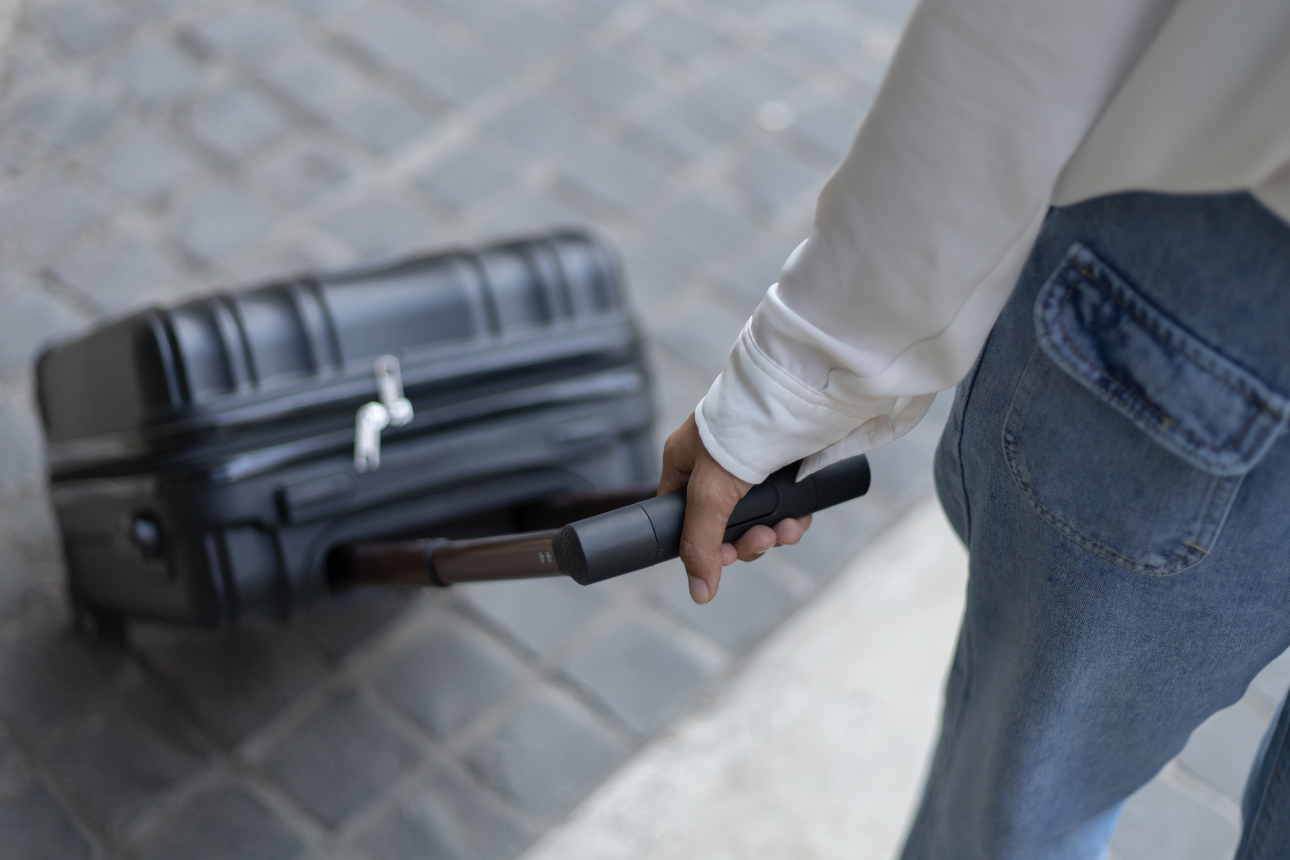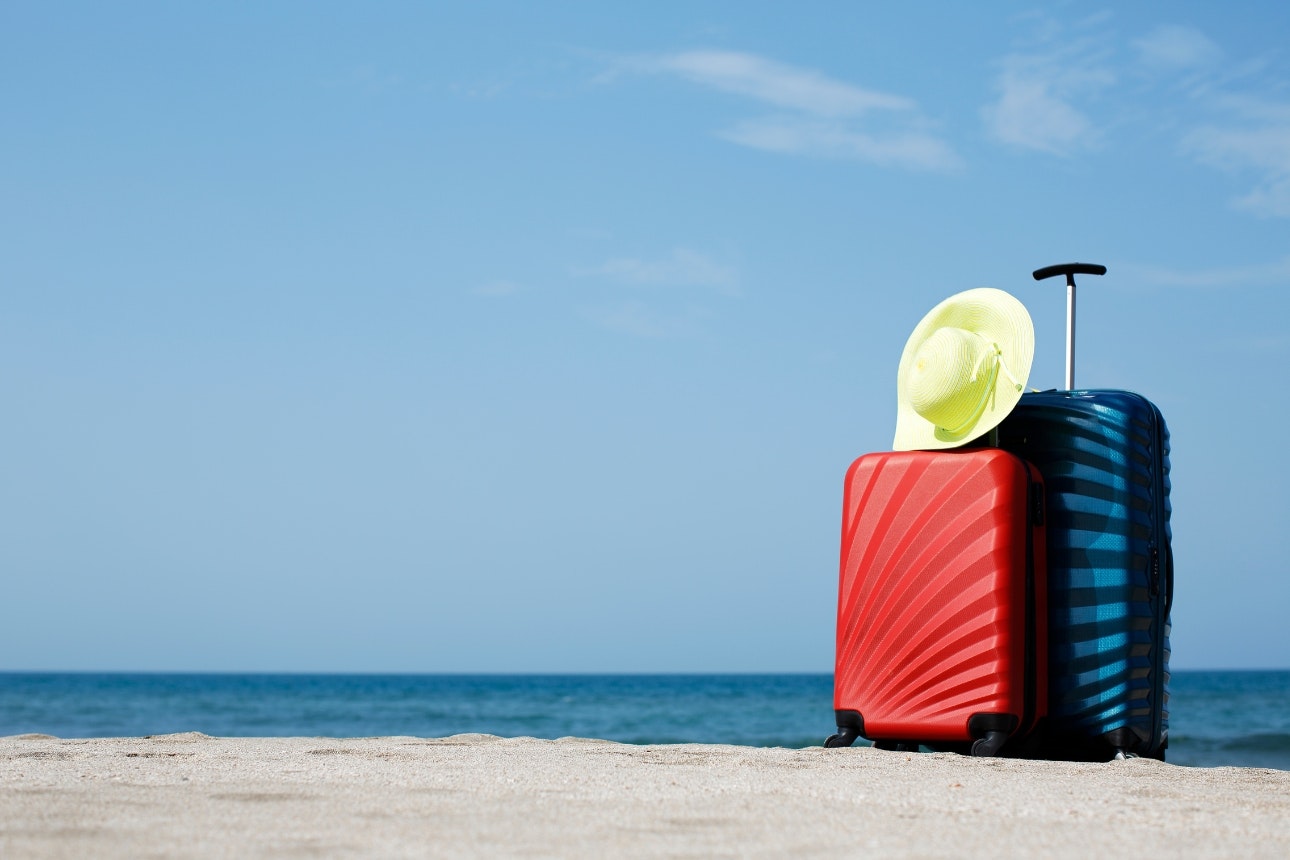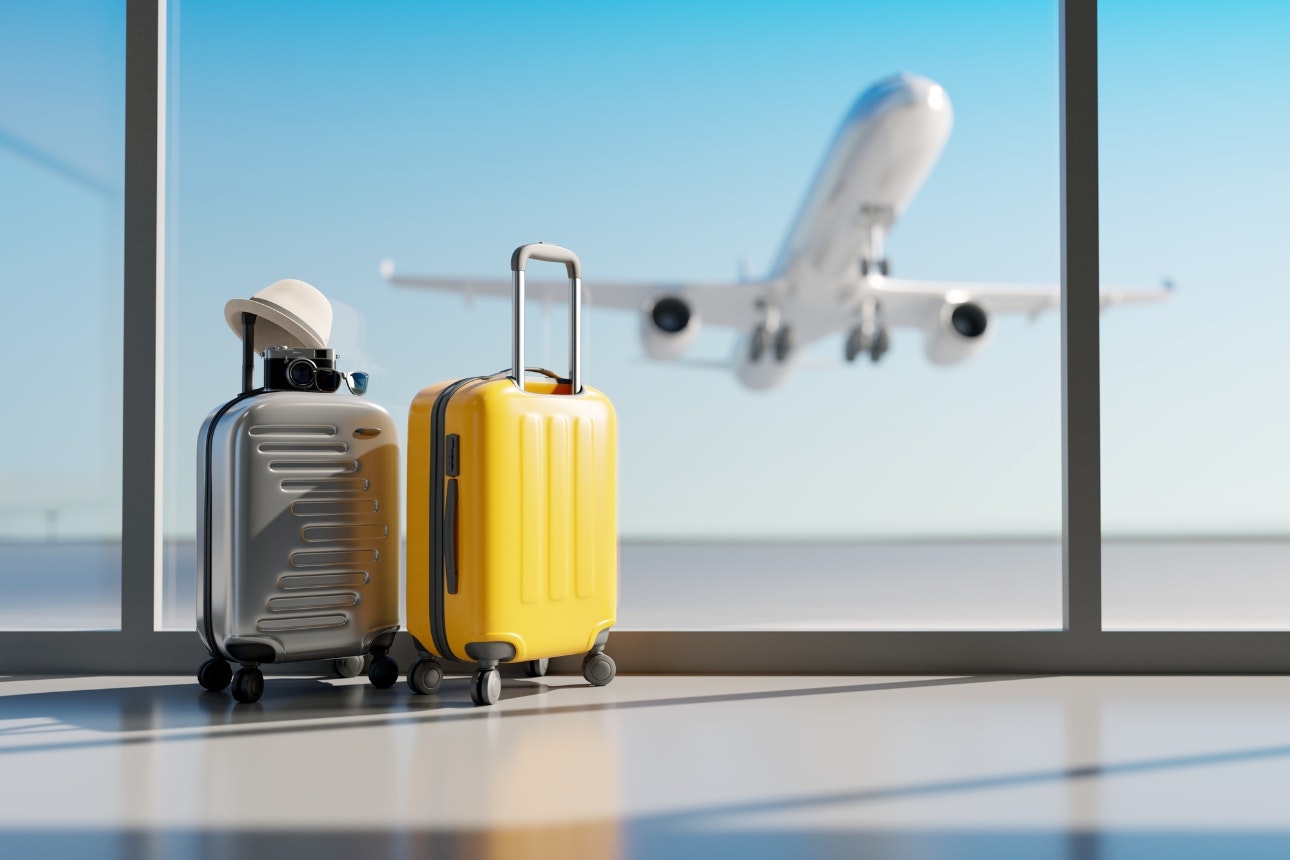
By Rebecca Styles
Research Lead | Hautū Rangahau
Our review of six domestic travel insurance policies found it has limited value.
On this page
- The benefits and coverage of domestic travel insurance
- Cancelling or interrupting trips
- Reimbursement for travel delays
- Holiday medical costs
- Lost or stolen luggage
- Car hire
- Ski holidays
- Pandemics such as COVID-19
- Buying domestic travel insurance, then changing your mind
- Do you really need domestic travel insurance?
- When is it worth getting domestic travel insurance?
- Common exclusions with domestic travel insurance
- About our survey

The benefits and coverage of domestic travel insurance
Cancelling or interrupting trips
Domestic travel insurance policies provide cover for lost deposits and cancellation fees if your plans come unstuck by unforeseen events. However, all the policies we assessed had a long list of exclusions.
You won’t be covered if you:
change your mind about travelling
need to cancel because of work commitments
make a mistake with your booking
have pre-existing medical problems that you didn’t tell the insurer about at the time you took out the policy. However, some cover may be available for those conditions if you undergo a medical assessment.
Where claims are accepted, AMI Travel Insurance and State Travel Insurance policies have a cap of $10,000. The maximum entitlement under the Travelinsurance.co.nz (TINZ) travel insurance policy is $25,000. With 1Cover Travel Insurance, you can choose your limit, while with AA Leisure Travel Insurance the limit is $15,000.
Southern Cross Travel Insurance provides unlimited cover if you cancel or change your trip before the departure date or $50,000 if you change plans because of an unexpected event while on holiday.
None of the policies pay out if your travel or accommodation provider goes out of business. If that happens, you can ask your bank for a chargeback (a refund to your card) if you paid for the service by credit or debit card.
Reimbursement for travel delays
Most comprehensive domestic travel insurance policies have some cover for travel delays with transport operators.
AA, 1Cover and Tinz will reimburse the reasonable costs for meals and accommodation if you’re delayed for at least 6 hours. For delays over 6 hours, you will receive an extra $200 for each additional 24 hours you’re delayed for each insured person to a maximum of $2,000 at AA and 1Cover. At Tinz it’s up to $1,000 for each insured person.
AMI and State will also cover some accommodation after the 6-hour period, up to $400, and any prebooked accommodation at your destination that you are delayed getting to because of the disruption, up to $750.
However, under law, you already have rights to reimbursement and other compensation from the transport operator for transport delays that are within its control.
For example, if flights are cancelled or delayed because of something within the airline’s control, like mechanical problems, you can ask for a refund. You’re also entitled to claim back any expenses you incur because of the cancellation or delay. This can include food and accommodation or alternative travel arrangements.
If your flight is cancelled or delayed because of weather, the airline will usually offer you a credit or rebook you on the next available flight. If you booked refundable fares, you can ask for a refund. However, you’re not entitled to claim any expenses because of this delay. This is where domestic travel insurance could be useful.
If your ferry has been cancelled because of the weather, the operator should rebook you on the next available trip. You can also ask for a refund of the ticket if the new time doesn’t suit you.
If the cancellation was because of mechanical failure or other circumstances within the operator’s control, you’re entitled to a refund and compensation for any reasonable associated costs, such as accommodation or alternative travel arrangements.
Holiday medical costs
If you break your leg on the ski field or come a cropper during a mountain bike ride, the health system will pick up the tab if you end up in a public hospital.
There’s limited cover from your travel insurance if you need other medical treatment.
AMI and State policies pay just $1,500 for medical or dental treatment. That money can go towards private treatment but only if public care isn’t available.
AA covers medical expenses (up to $2,500) emergency dental expenses (up to $1,000) for infections and broken teeth that did not existing issues before your trip.
Southern Cross, TINZ and 1Cover don’t cover medical expenses at all.
Lost or stolen luggage
All six policies we researched provided cover for damaged, lost or stolen gear. However, the cover is less than generous for many items.
AMI and State policies cap cover for luggage and travel documents at $5,000. There’s a $500 limit for cameras, tablets and laptops.
1Cover has a $7,500 limit for luggage and specific limits for electronics ($3,000 for a computer, camera or video recorder, $1,000 for a mobile phone or tablet and $750 for jewellery).
TINZ has $ 15,000 limit for luggage with a limit for electronics of $3,000 and a $1,000 limit for mobile phones.
AA has a $6,000 limit with a maximum of $1,000 for individual items.
Southern Cross’ maximum cover is $15,000. Laptops and cameras are capped at $3,000, and other items are capped at $1,500. Gear valued up to $10,000 can be listed on your schedule, but you’ll pay extra for it in your premium.
Most policies won’t provide cover of valuable items if you didn’t take reasonable care to keep them safe or left them unattended.
Pricey items put in check-in bags at the airport, bus or train station also won’t be covered by insurance unless the transport operator told you to stow the items there.
However, you may be able to claim compensation (up to $2,000) under the Contract and Commercial Law Act 2017. The act makes transport operators responsible for getting your gear safely from A to B. So, if Air New Zealand loses your checked-in bag, get in touch with the baggage services office and lodge a claim for compensation.
Car hire
Standard vehicle insurance is included in the price when you hire a car. However, you’ll have to pay the excess if you damage the vehicle – and the excess can be several thousand dollars.
You can pay extra to reduce the excess. Rental car companies call this option an excess waiver, excess reduction or zero excess.
Any domestic travel insurance you have should cover the excess. The car rental excess payout in the travel policies we reviewed ranged from $5,000 to $10,000.
Bear in mind that travel insurance won’t necessarily cover all costs if you have an accident. For example, 1Cover excludes cover for items such as tyres and windscreens if the rental car agreement also excludes these items.
You may also have to pay an excess on your travel insurance policy; figures we were quoted ranged from $25 to $200.
Ski holidays
You can get additional cover for your gear while on a skiing holiday with TINZ. It covers loss or damage to your ski gear, cancellation of lessons if you’ve been injured and can no longer attend or if the weather turns.
Ski insurance is also an optional extra with AMI, State and 1Cover.
Pandemics such as COVID-19
Generally, pandemics or epidemics are excluded from domestic travel insurance policies.
However, AA Travel Insurance offers some compensation if you:
are diagnosed with COVID-19 (or another pandemic or epidemic) before you leave for your trip
have been quarantined or denied boarding on transport because of the suspicion you have come down with COVID-19.
However, if there is a lockdown or changes to government alert levels, there’s no cover.
Southern Cross also provides some cover for unexpected events relating to Covid-19 such as, if you come down with the virus and need to change your journey, or cancel it.
1Cover treats Covid-19 like any other medical illness and, if diagnosed before departure, covers for trip cancellation up to your chosen cancellation limit. If diagnosed after your departure you may be covered for trip amendment costs or additional travel expenses up to $2,000. You will need a doctor to verify you have the virus to be entitled to claim.
AMI and State also have some cover available if you get Covid-19 before the start of your journey and need to cancel or change your departure date. There is also some cover for additional expenses, like transport or accommodation, if you get Covid-19 and can’t travel.
There’s no cover for pandemic or epidemic outbreaks with TINZ.
Buying domestic travel insurance, then changing your mind
All the policies we looked at had 14- or 21-day cooling-off periods (when you can cancel and get your money back). Outside the cooling-off period, Southern Cross will refund the premium if you haven’t started your trip and you don’t intend to make a claim. However, they will charge you a $35 cancellation fee.
Do you really need domestic travel insurance?
Given the limitations associated with domestic travel insurance, we recommend you think carefully about whether it’s worth the cost.
If you’ve got contents insurance, you may already have cover for your belongings. Check your policy to see whether it covers your flash camera or expensive jewellery while you’re travelling.
You can also take steps to minimise potential losses if things go wrong. When you’re booking accommodation, check the accommodation company’s terms to see what happens if you need to cancel. Opt for the accommodation options that have fair policies.
Under the Fair Trading Act, companies must ensure their standard terms and conditions, including cancellation terms, are fair. If the company isn’t measuring up, make a complaint to the Commerce Commission.
Pay by credit or debit card if you can. If you don’t get the service you paid for – for example, the hotel cancels your reservation and doesn’t provide a refund – you can ask your bank for a chargeback.
When is it worth getting domestic travel insurance?
If you’re hiring a car, it can be handy to get domestic travel insurance to cover the car rental excess. You may find it’s cheaper to buy the travel insurance than the excess waiver that the car rental company offers.
Southern Cross said it had paid out $42,000 in claims for rental car excess in the first five months of this year.
If you’re planning an epic journey around Aotearoa with your family which involves lots of pre-booked activities and accommodation, domestic insurance could be worthwhile.
To help give you a steer on whether domestic travel insurance is worthwhile for you, Southern Cross told us about these examples of some payouts for domestic travel insurance in its last financial year (June 24 – June 25):
$11,733 customer hospitalised for a pneumothorax and unable to travel.
$8,003 trip cancelled due to a cancer diagnosis
$7,068 tour cancelled due to severe weather
$6,620 trip cut short due to Covid-19
$6,383 customer diagnosed with heart failure and pneumonia
The insurer also told us the top three most common claims for domestic travel insurance are:
Changes to journey
Baggage and personal items
Rental vehicle excess.
Common exclusions with domestic travel insurance
Common exclusions include:
travelling against medical advice
complications with a pregnancy
riding a moped or motorcycle without a helmet or the appropriate licence
adventure activities, such as abseiling, parachuting or paragliding (however, most insurers offer separate ‘adventure activity’ policies on request.)
more extreme activities, like BASE jumping or motor sports aren’t covered at all.
About our survey
We reviewed domestic travel cover provided by:
1Cover Travel Insurance
AA Leisure Travel Insurance
AMI Travel Insurance
Southern Cross Travel Insurance
State Travel Insurance
TINZ.



